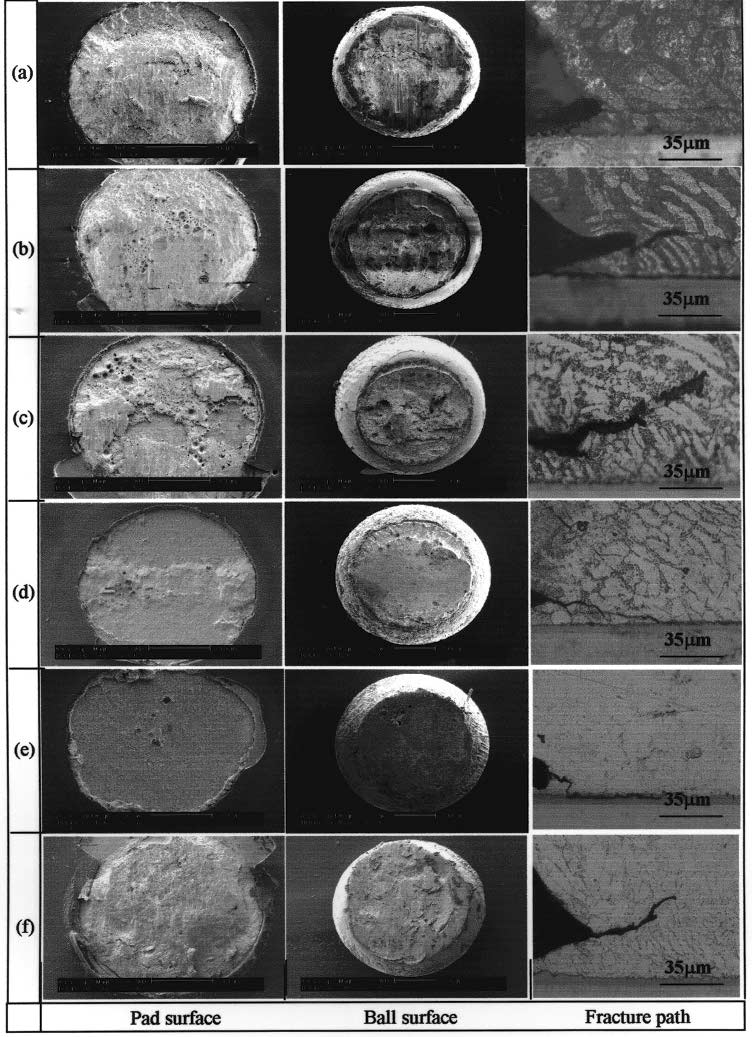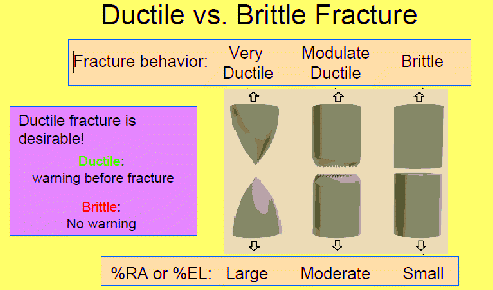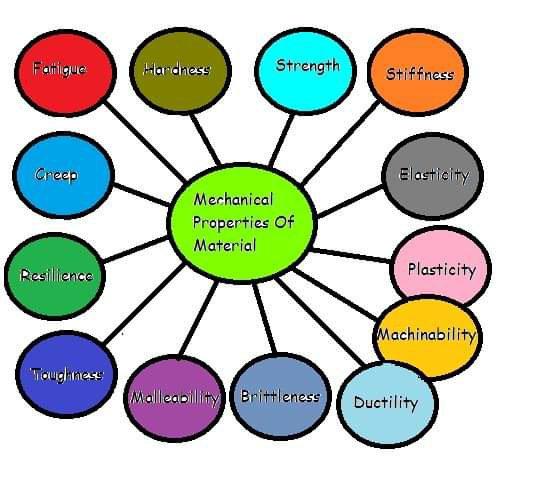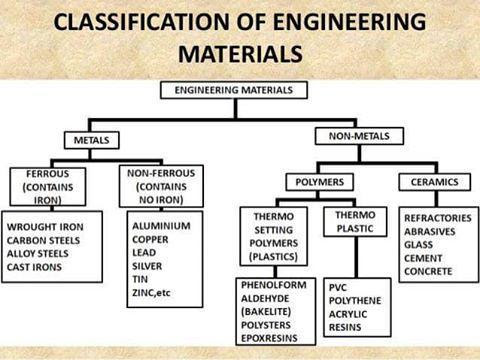
Material selection is a step in the process of designing any physical object. In the engineering design, Material Selection is an important aspect. The material of the part depends on the requirements of the part, the number of parts needed, and the manufacturing process to be adopted to make the part. In the mechanics of materials, the strength of a material is its ability to withstand an applied load without failure or plastic deformation. The field of strength of materials deals with forces and deformations that result from their acting on a material.

Material failure is the loss of load-carrying capacity of a material unit and is one of the most crucial problems to face for Mechanical Engineers.
Types of Material Failure:
Material failure can be distinguished into two broader categories depending on the scale in which the material is examined:
1. Microscopic failure
Microscopic material failure considers the initiation and propagation of a crack.

Failure criteria related to microscopic fracture: These criteria yield potential by introducing a scalar damage quantity, the void volume fraction of cavities, and the porosity.
- Micromechanical failure
- Continuum damage mechanics
- Thermodynamics.
2. Macroscopic failure
Macroscopic material failure is defined in terms of load-carrying capacity or energy storage capacity, equivalently.

Four categories of macroscopic failure criteria:
- Stress or strain failure
- Energy type failure (S-criterion, T-criterion)
- Damage failure
- Empirical failure
Brittle material failure criteria
Failure of brittle materials can be determined using the following approaches:
- Phenomenological failure criteria
- Linear elastic fracture mechanics
- Elastic-plastic fracture mechanics
- Energy-based methods
- Cohesive zone methods
Ductile material failure (yield) criteria
A yield criterion is also expressed as yield surface, or yield locus. It is a hypothesis concerning the limit of elasticity under any combination of stresses.

Isotropic yield criteria
Isotropic yield criteria are based on the following theories:
- Maximum principal stress theory
- Maximum principal strain theory
- Maximum shear stress theory / the Tresca yield criterion
- Total strain energy
- Maximum distortion energy theory / octahedral shear stress theory
Anisotropic yield criteria
When a metal is subjected to large plastic deformations the grain sizes and orientations change in the direction of deformation, and the isotropic yield criterion is unable to predict the yield behavior accurately.
Several anisotropic yield criteria have been developed to deal with such situations. Some of the more popular anisotropic yield criteria are:
- Hill’s quadratic yield criterion
- Generalized Hill yield criterion
- Hosford yield criterion
Models for the evolution of the yield surface with increasing strain, temperature, and strain rate are used in conjunction with the above failure criteria for isotropic hardening, kinematic hardening, and viscoplasticity.
There is another important aspect of ductile materials – the prediction of the ultimate failure strength of a ductile material. Several models for predicting the ultimate strength have been used by the engineering community with varying levels of success. Such as a combination of porosity and strain to failure or a damage parameter.
Cost issues
The cost of materials plays a very significant role in their selection. The most straightforward way to weigh the cost against properties is to develop a monetary metric for properties of parts. Of course, cost per kg is not the only important factor in material selection. An important concept is ‘cost per unit of function’.
Optimizing complex combinations of technical and price properties is a hard process to achieve manually, so rational material selection software is an important tool.
The material selection primarily depends upon the material’s properties and several other factors like availability, economic aspects, etc.
Properties of the Material

The properties, need to be considered as regards to material selection:
- Physical properties
- Mechanical properties
- Dimensional properties.
- Technological properties
- Acoustical properties
- Atomic properties
- Chemical properties
- Electrical properties
- Magnetic properties
- Manufacturing properties
- Castability
- Optical properties
- Radiological properties
- Thermal properties
It is best to consider the alternatives from a wide gambit of materials, viz.
- Ferrous Materials such as cast iron, cast steel, mild steel, alloy steel, carbon steel, tool steel, etc.
- Non-ferrous materials and Their Alloys as plastics, ceramics, elastomers, composite materials, etc.

Availability of the Material
After the selection of the material from consideration of properties, the next step is to check availability:
- Whether the material is readily available
- lead time for procurement
- Quantity required
- Nature of supplies
- Whether any special method is required to manufacture.
Economics
The final step is to examine economics:
- The minimum cost
- The cost of a material consists of 1) initial cost 2) processing cost and 3) maintenance cost.
- Reality often presents limitations, and the utilitarian factor must be taken in consideration. The cost of the ideal material, depending on shape, size, and composition, may be prohibitive, and the demand, the commonality of frequently utilized and known items, its characteristics, and even the region of the market dictate its availability. The appropriate material selection should be the responsibility of the engineer to establish the performance requirements that the material must meet and the economic constraints.
Become a leader in your field! Join Ken Institute and unlock a world of online courses in Mechanical Engineering, Occupational Health and Safety, Fire Safety, and Environment and Sustainability. Propel your career to new heights.
Get in touch with us At: info@keneducation.in,
visit our website at www.keneducation.in or call us at +917569034271
Let’s connect on Facebook, YouTube, LinkedIn, and Instagram.

